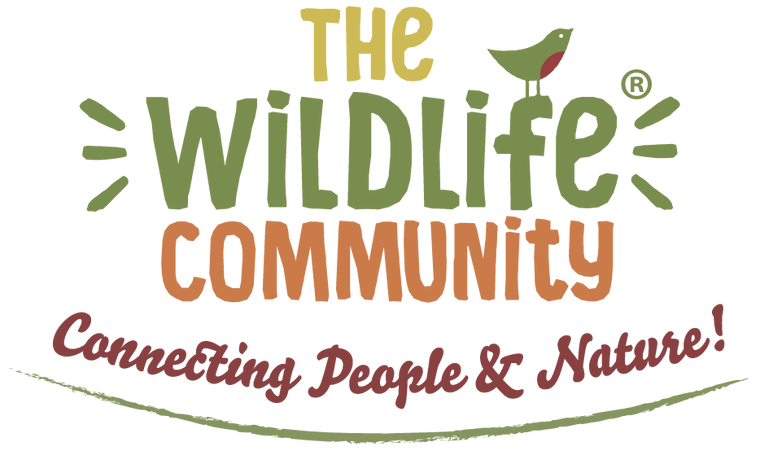Citizen Science
Get Involved in Citizen Science - Make a Difference for UK Wildlife!
Have you ever wondered how you can contribute to understanding the natural world around you? The answer is closer than you think! Citizen science offers everyone the opportunity to participate in valuable research projects and make a real difference for UK wildlife.
What is Citizen Science?
Citizen science is collaborative research where the public participates in collecting and analyzing data. This data helps scientists answer important questions about wildlife trends, distribution, and behavior. From counting birds in your garden to recording sightings of rare species, you can contribute valuable information that would otherwise be difficult or impossible to obtain.
How Can You Get Involved?
There are many many worthwhile Citizen Science projects to participate in but we'd like to draw your attention to The Big Bee Hotel Experiment in particular though, because it's a project we're proud to be involved in.
We'd love it if our Bee Hotel customers participated in the project, not just for the data but also to help inform improvements to the Bee Hotels we produce and sell. We want them to be real 5* abodes for our hard-working solitary bee mums and offspring.
The Buzz Club team, led by Dave Goulson and his team of PhD students, have a number of projects you can participate in as well as The Big Bee Hotel Experiment, so please do check their website out and support their work if you have time. We look forward to seeing your results!
Here are some other exciting ways you can get involved in other citizen science in the UK:
Biological Recording Schemes:
- iRecord: https://www.irecord.org.uk/ Share your wildlife observations using this popular platform. Simply take a photo or record a sound of a plant or animal and upload it, helping scientists build a valuable national record of our biodiversity.
- National Biodiversity Network (NBN): https://www.nbn.org.uk/ Explore a wide range of recording schemes for specific species groups like butterflies, moths, and ladybirds. Contribute directly to their conservation efforts!
National Projects:
- Big Garden Birdwatch (The Wildlife Trusts): https://www.rspb.org.uk/whats-happening/big-garden-birdwatch Join this annual event in January to help monitor changes in bird populations across the UK. It's a fun and easy way to contribute to citizen science with your whole family.
- Nest Record Scheme (The British Trust for Ornithology): Nest Record Scheme participants gather vital information on the breeding success of Britain's birds by following the progress of individual nests. https://www.bto.org/our-science/projects/nest-record-scheme
- The Buzz Club Big Bee Hotel Experiment (University of Sussex): https://www.thebuzzclub.uk/thebigbeehotelexperiment This exciting project invites you to build or purchase a bee hotel, monitor its use throughout the season, and submit your data to gain valuable insights into bee populations and the effectiveness of bee hotels.
Other Citizen Science Projects:
- Bloomin' Algae (Centre for Ecology & Hydrology): Bloomin’ Algae is a Citizen Science app for reporting the presence of harmful algal blooms of blue-green algae. The app helps speed up public health warnings and can help teach you how to recognise the risks to you, children and animals. https://www.ceh.ac.uk/our-science/projects/bloomin-algae
- National Honey Monitoring Scheme (CEH): working in partnership with UK beekeepers to monitor long-term changes in the condition and health of the countryside. https://honey-monitoring.ac.uk/
- UK Pollinator Monitoring Scheme (CEH): Pollinating insects play a vital role in our environment, ensuring that many of our crops and wild plants are able to set seed and produce fruit. We need to know how pollinator populations are changing, and with your help we are gathering data on a wide range of flower-visiting insects. https://www.ceh.ac.uk/our-science/projects/uk-pollinator-monitoring-scheme
- Shoresearch (The Wildlife Trusts): (https://www.wildlifetrusts.org/shoresearch]) Become an amateur marine biologist by joining Shoresearch, a national citizen science survey of the intertidal shore. Learn to identify shoreline plants and wildlife and help monitor this special habitat.
- Wildlife Recording Hub (Natural History Museum): (https://www.techuk.org/resource/guest-blog-enhancing-biodiversity-monitoring-and-people-s-connection-with-nature-the-natural-history-museum-s-data-ecosystem.html) Discover how to record the wildlife in your urban environment, improving our understanding of UK habitats and how to protect and enhance them. Includes collections of biological recording schemes run by other UK organisations and a month-by-month calendar of suggested activities.


